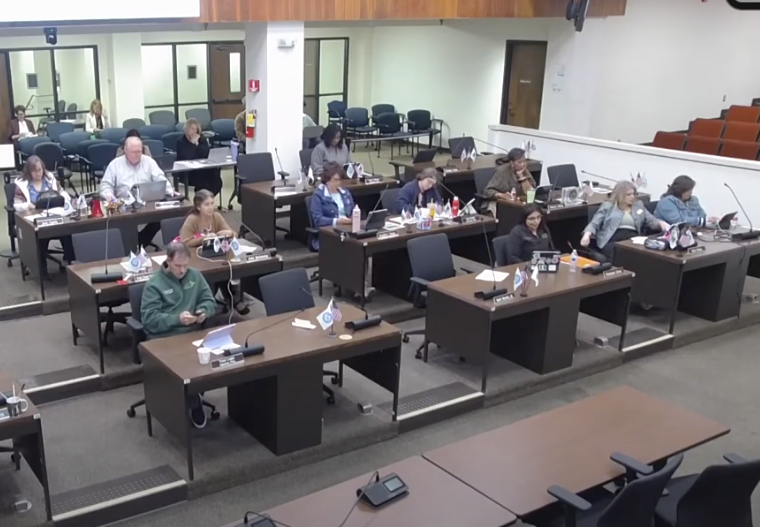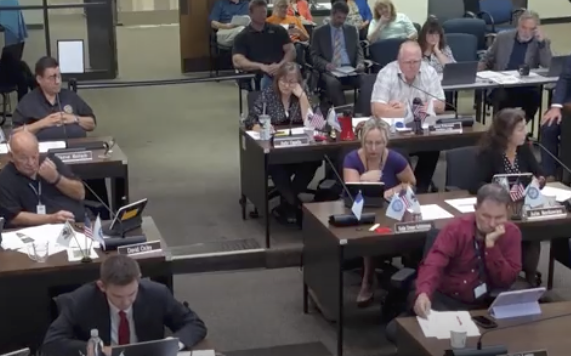
Colorado committed to increasing housing supply
Colorado remains committed to building more homes to address the ongoing housing crisis.
Gov. Jared Polis, a Democrat, joined state legislators in making that commitment.
“It is not rocket science that by increasing housing supply, we can decrease rent spikes and help more Coloradans realize the dream of home ownership,” Polis said. “Breaking down barriers to housing includes getting rid of parking requirements, building more housing near transit lines, and reworking zoning in order to save people money, and help Coloradans live where we want to live.”
This came in response to a new report from Pew Research Center that found that increasing housing in low-income neighborhoods has a direct correlation with decreasing rent prices.
The report analyzed publicly available housing data and discovered that the U.S. faces a shortage of between 4 million and 7 million homes. This is a result of “restrictive zoning ordinances,” according to the report.
Colorado alone needs upward of 134,000 more affordable homes for extremely low-income households, according to the 2025 report from the National Low Income Housing Coalition.
“With a shortage of over 100,000 homes across Colorado, our housing laws will help spur new housing options that will make it more affordable to call Colorado home,” said House Speaker Pro Tempore Andy Boesenecker, D-Fort Collins.
Boesenecker added that Democrats are making this issue a priority.
“From building more high-quality starter homes to modernizing building codes and removing barriers to low-cost modular homes, Colorado Democrats have made housing affordability a top priority at the Capitol,” he said. “This PEW study confirms that the work that Colorado Democrats have done to accelerate budget-friendly housing options will help prevent rent prices from skyrocketing.”
Previous reporting from The Center Square has noted the connection between low supply of affordable housing and increasing homelessness.
The PEW report found rents increased the most in the lowest‑income ZIP codes. Notably, Denver was listed as one of the cities that saw some decreases in rent prices from 2023 to 2024, especially in older, less expensive buildings.
Earlier this month, Polis updated a previous executive action to push more affordable housing for Colorado.
The amended executive order directed state agencies to prioritize grant funding to local communities that are “leading on the effort to create more housing that Coloradans can afford.”
Community leadership is defined as compliance with a number of “strategic growth” state laws designed to make housing more affordable and increase supply.
“Solving our state’s housing crisis requires us to remove barriers to building more housing and prioritize housing near transit to encourage homeownership and affordability at all entry points,” said Rep. Steven Woodrow, D-Denver.
The governor’s office applauds efforts made so far, citing a number of “landmark laws” largely pushed by Democrats.
“Colorado is leading the way in lowering the cost of housing and breaking down government barriers blocking new housing that people can afford,” Polis’ office said in a statement.
Latest News Stories

Ex-speaker Madigan to begin 7.5-year prison sentence Monday

Will County’s Gas-to-Energy Plant Reports Nearly $460,000 Net Loss Amid Operational Setbacks

Will County to Draft First-Ever Policy on Artificial Intelligence Use

Will County Sees 50% Drop in Opioid Deaths, But Alarming Rise in Suicides

Will County Board Backs Effort to Rename ‘Stigmatizing’ Chicago Sanitary and Ship Canal

Access Will County Dial-a-Ride on Track for Full County-Wide Service in 2026

Trump says new 100% tariff on China as trade war escalates

Arizona congressman calls for end to government shutdown

WATCH: Pritzker continues encouraging ICE protests after Guard blocked

Illinois quick hits: Ag incentives announced; Cook County announces increased budget

Divided Will County Board Authorizes Condemnation for 143rd Street Widening

Former board member expressed concerns about indicted DeKalb superintendent

Fiscal Fallout: Illinois has among highest-paid state employees

